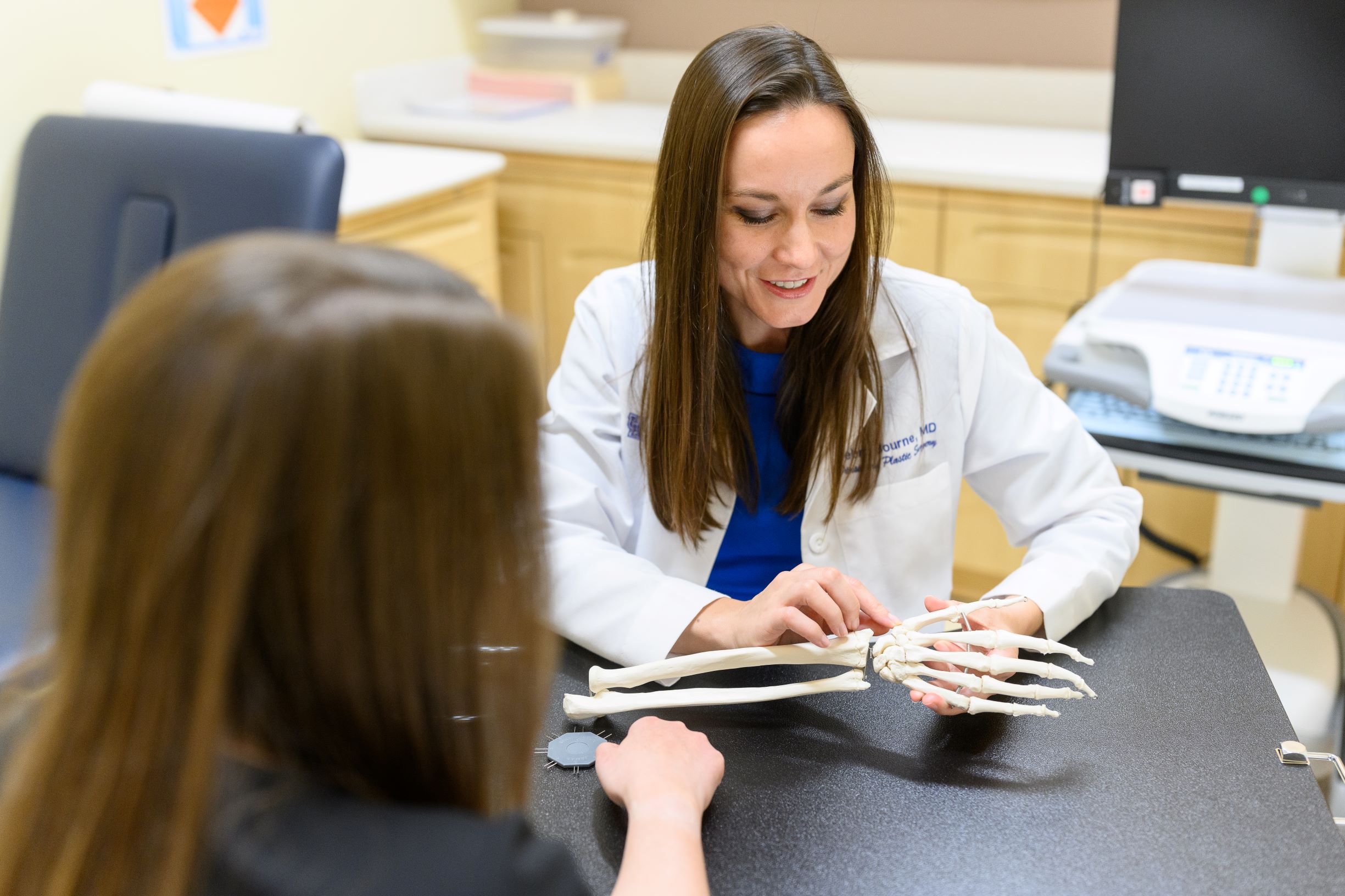How to find relief for nerve problems, including carpal tunnel syndrome

This article was written by Dr. Debra Bourne, a hand surgeon at the UK HealthCare Hand Center
Peripheral nerves connect your brain and spinal cord to the rest of your body. The peripheral nerves in your arms and hands allow you to move and to feel. If those nerves become injured, you might start to experience the sensation of “pins and needles” and other unpleasant symptoms.
Let’s go over the basics of peripheral nerves injuries, including one of the most common types — carpal tunnel syndrome — as well as how you can find relief.
What are types of peripheral nerve injuries?
- Compression: This is when you have pressure on your nerve. Some examples include carpal tunnel syndrome and cubital tunnel syndrome.
- Trauma: This could be something like a cut. The sooner we can get that repaired, the sooner the nerves can start regenerating.
For trauma injuries, it’s really important to be evaluated early. Say you have a cut in your forearm and we repair it; the nerves across the repair are made up of little cables. The cables have to regenerate from where you suture them back together all the way back to the hand, and they regenerate very slowly — only an inch per month.
What are some of the symptoms of carpal tunnel syndrome?
The typical symptoms are:
- Night pain: This means you wake up in the middle of the night to shake your hand because it’s gone numb.
- Numbness in the fingers: All fingers except the pinky are affected.
- Weakness in the hand: You might notice that you start dropping objects more frequently.
How do you test for carpal tunnel syndrome?
We might conduct an electromyography (EMG) nerve conduction study. If you have carpal tunnel syndrome, we'll see on the test that the nerve signal actually slows down as it goes through the carpal tunnel.
We order this test because sometimes there’s more going on than just carpal tunnel. Sometimes you have nerve compression in the neck, or you might have some numbness due to diabetes.
Are there any risk factors for carpal tunnel?
Some risk factors include:
- Having diabetes.
- Being female, particularly during pregnancy.
- Using vibratory tools, like jackhammers.
Although it’s a commonly held belief, using a keyboard is not actually shown to cause carpal tunnel syndrome.
What treatment options are available for carpal tunnel?
The first line of treatment is to wear braces at night. This helps keep the wrist in a neutral position. Steroid injections might also help.
If carpal tunnel symptoms persist, we usually recommend surgical treatment. The surgery is an outpatient procedure, and recovery takes about a month. During the surgery, we make a small incision in the palm, and then open up the carpal tunnel so that the nerve no longer has pressure on it.
Learn more about the UK HealthCare Hand Center and the services it offers by visiting our website, or call 859-323-4263 to schedule an appointment.




